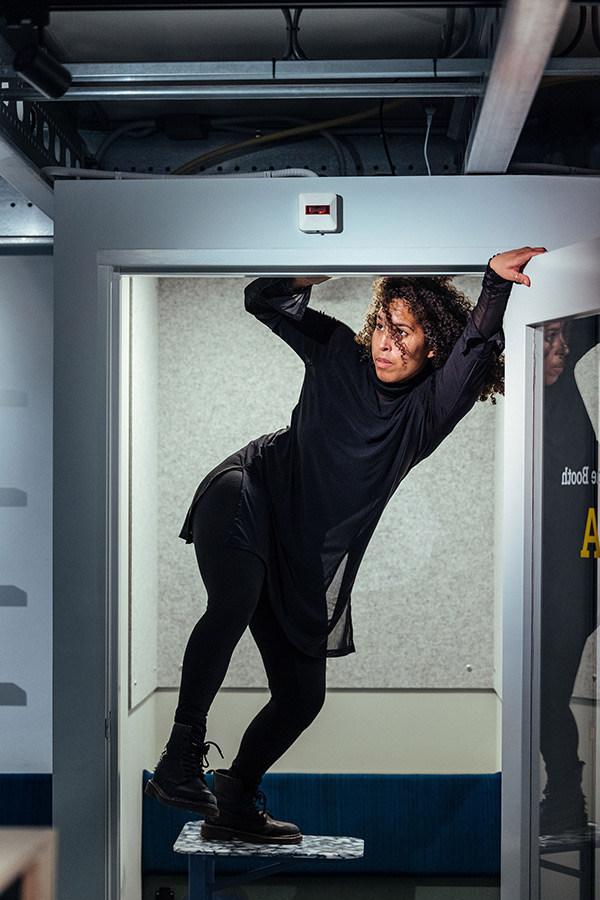In the AHK Culture Club, alumni from all academies of the AHK come together. You are given the opportunity here to conduct research in a multidisciplinary manner, to organise events and to collaborate. Two batches of alumni have preceded you. This is the story of Rebecca Wijnruit, alumna of Academy for Theatre and Dance.
study course Dance in Education.
Curious to know more? Read the stories of other alumni and their time in the Culture Club here. Would you like to set to work at this inspiring AHK location? Drop by on 25 June during the final presentations, experience the atmosphere and meet the alumni from Team 2! Click here for more info.
Rebecca Wijnruit - Academy for Theatre and Dance
When she started doing hip-hop and street dance as a child, dancer Rebecca Wijnruit (27) knew it immediately: may this never end. ‘I had always loved sport, movement and music, and that all came together for me in dance. The wonderful feeling of searching for new dance forms to the accompaniment of music. The sensation of muscles that tighten and relax with each new form. Experiencing with the body instead of the brain. That is what I find in dance.’
Rebecca is now conducting research into her passion. As an alumna of the Academy of Theatre and Dance, she is occupied in the AHK Culture Club with the question of how gender possibly influences dance and dance education. ‘You have to deal with a lot of different energies in dance, including feminine and masculine. Dancers are particularly adept at playing with that. However, which assumptions and stereotypes precede that? With this research, I want to create a gateway to awareness of the possible relationship between dance and the (Western) social construction of gender and, if that exists, to explore how this relates to dancers and dance students. On the basis of that awareness, a method can be developed that recognises any conformism to that construction and in response to that will approach movement from a different, more dynamic perspective.’
‘Because conforming in dance has an irrevocable effect on how dance takes shape. With awareness, you may eventually create more freedom in the head of a dancer, so they are able to become even more familiar with their own body and use it better, without the restriction of any conformism. I don’t expect that my research will achieve all that, but I hope to offer a gateway to reflection that may ultimately lead to awareness.’
In the Culture Club, Rebecca found an environment where she could conduct her research in total freedom. ‘You are given all the building blocks you need here, but are stimulated above all to start building yourself. Because you work with teammates in the Art & Society programme, you learn how the others think and as a result of that you get to know better how you yourself think. I stepped outside my ‘dance bubble’ for the first time and I come into contact with alumni from other academies, and that is extremely beneficial. The Culture Club has turned out to be a learning experience for me, both personally and professionally.
